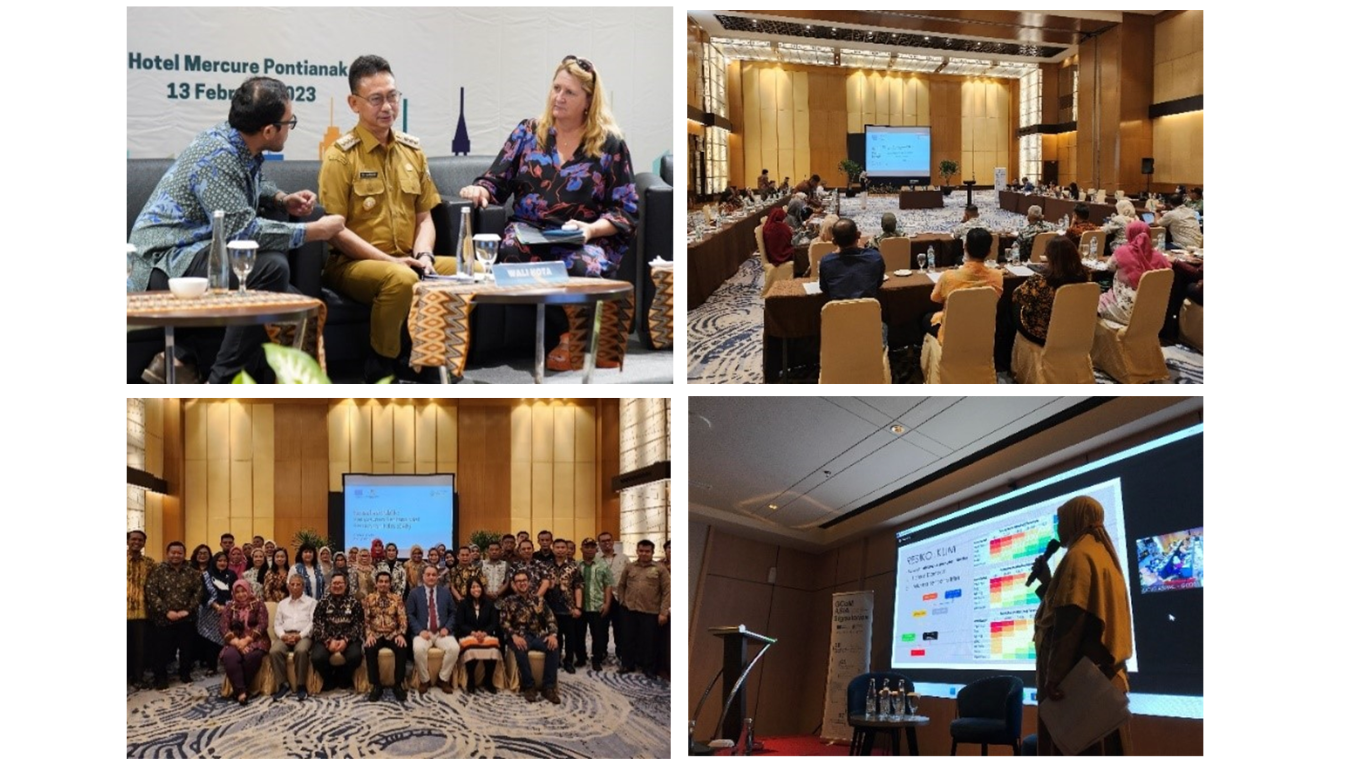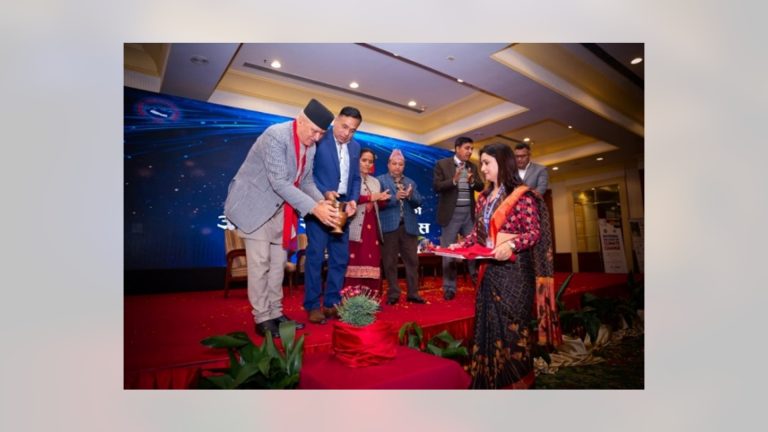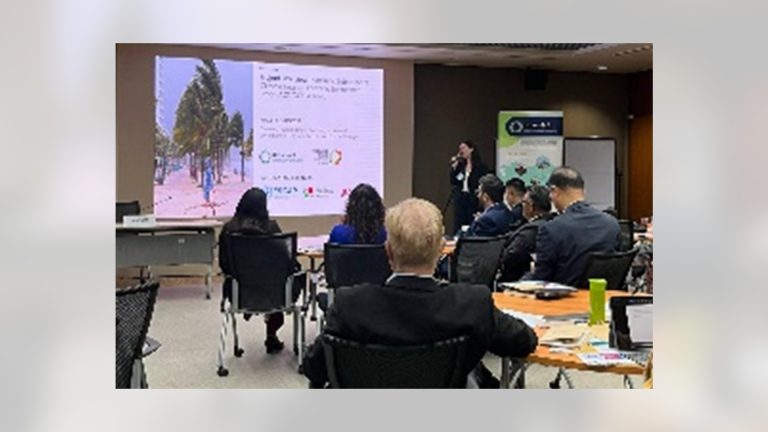UCLG ASPAC, the host of the GCoM Southeast Asia Secretariat, successfully organised a series of public consultations on Climate Action Plan (CAP) development in three Indonesian pilot cities: Tangerang (February 6), Medan (February 9), and Pontianak (February 13). These series of events are part of the GCoM Asia project support to ensure local governments of GCoM SEA pilot cities gained valuable inputs and feedback when drafting the Climate Action Plan (CAP); thus achieving each city’s climate ambition.
Tangerang

February 6, 2023 | The public consultation in Tangerang was attended by 36 participants, comprising local government officials, non-governmental organisations, and community representatives. The session was graced by Ms. Henriette Faergemann, the Attaché of Environment, Climate, and ICT of the European Union Delegation of (EUD) to Indonesia and a video message by Mayor Arief Rachadiono Wismansyah.
A presentation of the city’s conditions and challenges in enhancing climate adaptation efforts was conducted by representatives of Tangerang’s Climate Change Working Group. In the presentation, they shared seven districts in Tangerang with a very high climate risks due to unprecedented weather shifts, drought, and floods in several areas. In response to this issue, Tangerang has carried out some activities to increase society’s capacity in the aspect of sanitation and education. Relating to climate mitigation, they shared three main sectors that produce a large amount of greenhouse gas (GHG) emissions: 1) energy, 2) Agriculture, Forestry and Other Land Use (AFOLU), and 3) waste. As a mitigation strategy, the city plans to develop waste-to-energy facilities, utilisation of electric cars for government officials’ vehicles, and improvement in waste management facilities.
During the public consultation, inputs received included priority on improvement and renovation of the existing facility, instead of buying and constructing new infrastructures, for effective and efficient actions.
Medan

February 9, 2023 | The public consultation in Medan was attended by 52 participants, including local governments, academia, private sectors, and non-governmental organisations. Attending this session were Mr. Seth van Doorn (Project Manager of Foreign Policy Instrument of the EUD to Indonesia).
Mr. Ferry Ichsan (General Administrative Assistant of Medan City Government), representing the Mayor of Medan, highlighted that the flood problems in Medan are caused by increased rainfall and extreme climate change. The Development Planning Agency of Medan presented a programme formulated to enhance the city’s resilience to climate risks and impacts. It includes the development of electric public transportation, the procurement of smart lamps, investments in Waste-to-Energy Power Plants (Pembangkit Listrik Tenaga Sampah/PLTSa) and low-emission public transportation. Additionally, the programme emphasises the importance of education, society, and technology in addressing environmental impacts. The action plan is expected to enhance the resilience and adaptability of Medan to climate change.
Responding to this, representatives of academicians suggested the utilisation and sharing of knowledge between local government and academicians. Medan City Government positively welcomes this proposal that they invite universities to share the results and findings of their researches to be considered in the decision-making process.
Participants of the discussion agreed that collaboration among stakeholders in Medan is needed to help address climate change impacts and to achieve goals faster.
Pontianak
February 13, 2023 | The public consultation in Pontianak was attended by 59 participants comprising representatives from local governments, academia, private sectors, and non-governmental organisations. The event was blessed with the presence of Mayor Edi Rusdi Kamtono who officially opened the event.
Mayor Edi highlighted three issues faced by the city, such as flooding, waste management, and renewable energy. Pontianak City Government also shared that the largest contributor to GHG emissions in the city is the energy sector, such as transportation (although decreased during the COVID-19 pandemic). Further, it was shared that the forestry and land use sector previously had a net carbon sink, but the decomposition of peatlands has now contributed to emissions. The waste sector has also contributed, particularly industrial, solid, and domestic waste.
Responding to this, Pontianak City Government shared the city’s climate plan, including a Mitigation Action Plan to reduce GHG emissions in four key sectors: energy, industry, AFOLU, and waste with 13 criteria to evaluate the effectiveness, such as using low-emission vehicles, installing energy-efficient streetlights, managing waste, and promoting green spaces. The plan formulation considers the increasing trend of GHG emissions and data from 2010 as a baseline for predicting future emissions.
Pontianak City Government also shared that they have formulated Mitigation Action Plan that provides various solutions, such as low-emission vehicles, energy-efficient lighting, waste management, mass transportation, and promoting green spaces. Household-scale actions include providing energy-efficient electronics, implementing audits for office buildings, and promoting smart buildings. The plan also focuses on controlling the use of space and implementing sustainable land-use systems.
During the public consultation, Pontianak received inputs including alignment of the CAP with business, politics, and economic sectors. Other valuable input includes the view that regulation support needs to also be accompanied by the city’s capacity to implement and involvement of and/or participation from related stakeholders.
The last public consultation will be organised in North Minahasa. Following the completion of the public consultation series in four Indonesian pilot cities, the CAPs are expected to include inputs from all stakeholders involved. The pilot cities will be invited to present their CAPs at the GCoM Southeast Asia Regional Workshop in Bangkok, March 30-31, 2023.











